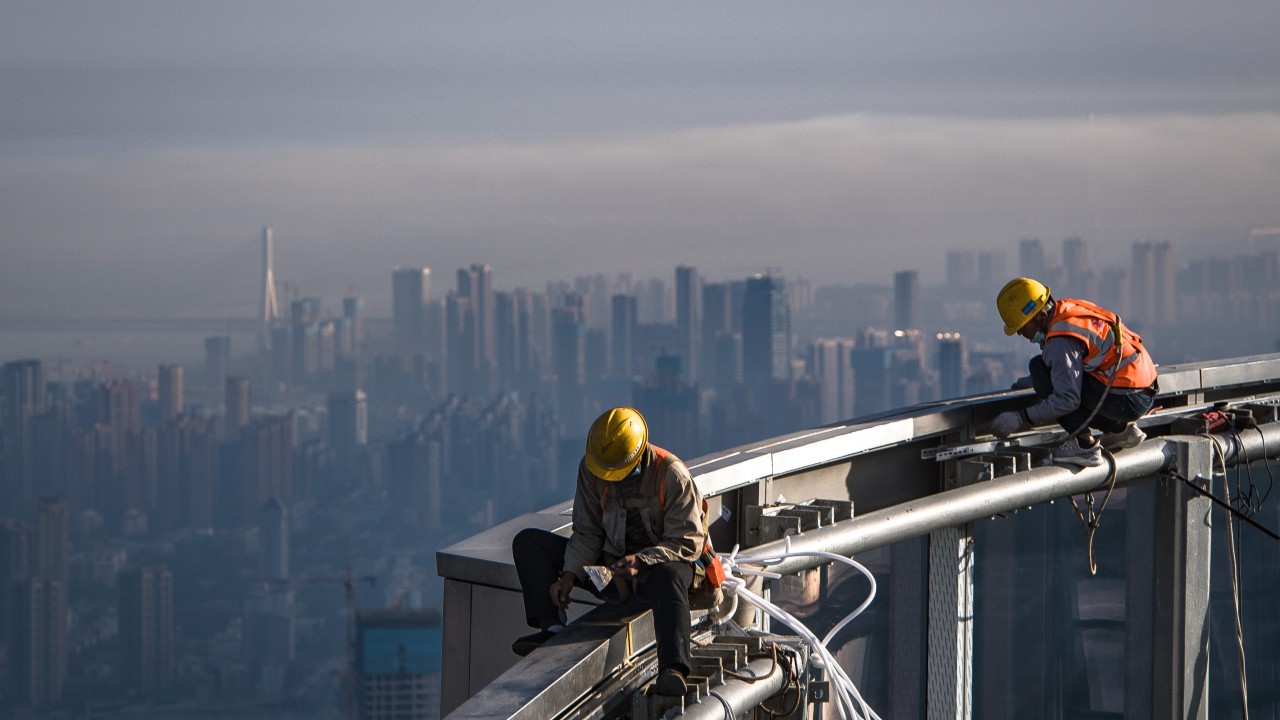
It will need to spend US$1.33 trillion, nearly 40 per cent of the about US$3.5 trillion needed globally, on cutting construction-related carbon-dioxide emissions, so that by 2035, these emissions will be 13 per cent below last year’s levels, the IFC said in a report published on Thursday.
This target will put the world on the path to achieving global climate ambitions of net-zero emissions by 2050.
“Construction value chains in emerging markets are a major contributor to global carbon-dioxide emissions, and the problem is set to get worse by 2035,” the report said. “Global climate goals are unlikely to be achieved without a reduction in emissions from the construction and operation of buildings.”
China, responsible for 54 per cent of global steel output and 60 per cent of cement production last year, was responsible for 40 per cent of the 15 billion tonnes of global construction value chain carbon-dioxide emissions in 2022, IFC’s researchers said. High-income countries contributed 31 per cent and all other emerging markets together accounted for 29 per cent.
IFC’s Hong Kong-based regional head to focus on sustainability efforts
IFC’s Hong Kong-based regional head to focus on sustainability efforts
To align with global climate ambitions, the world will require additional efforts to drive buildings’ energy-efficiency gains besides the usage of cleaner energy and more sustainable construction materials, on top of climate commitments already made by countries under the Paris Agreement.
Without such efforts, if existing government climate commitments are fully delivered, emissions are projected to be brought down by only 3.6 per cent by 2035 from last year’s levels, based on simulations conducted by the IFC researchers.
The operation of buildings alone made up roughly 20 per cent of energy and industrial-related carbon-dioxide emissions globally, followed by 19 per cent from the production and supply of construction materials, the report said.
Deutsche Bank eyes tie-ups with Chinese peers on green finance deals
Deutsche Bank eyes tie-ups with Chinese peers on green finance deals
If the world does not deliver on commitments made under the Paris Agreement, current industry policies mean emissions are likely to increase by about 13 per cent by 2035, which would equal the total construction-related emissions of the United States in 2022, it added.
China will need to plough the US$1.33 trillion into retrofitting buildings and clean energy and low-carbon building materials production projects, if it wants to align its construction value chains with global climate ambitions, the IFC researchers said.
But this is a tough challenge, because promising decarbonisation technologies such as green hydrogen and carbon capture and storage, are likely to only become commercially viable without subsidies by 2035 or later, they added.
Green fintech ecosystem in Hong Kong, Apec needs standardisation, collaboration
Green fintech ecosystem in Hong Kong, Apec needs standardisation, collaboration
This means deploying already available commercial technologies – such as replacing carbon-intensive clinker, the intermediary product in manufacturing cement, with alternative materials such as calcined clay, recycling of steel and usage of cleaner fuels at cement factories – will be a priority in emerging markets including China over the next decade.
In China, factors favouring investment in low-carbon cement and steel include the recent deployment of carbon emissions cap-and-trade programmes at the provincial level, their planned scale-up nationwide and tighter environmental regulations, the IFC researchers said.
World Bank unit sees US$20 trillion of green investment opportunities
World Bank unit sees US$20 trillion of green investment opportunities
Global private debt financing for greener construction increased twenty-fold, from about US$10 billion in 2017 to US$230 billion in 2021, the report said. However, only 10 per cent was in emerging markets.
“With the right enabling measures, we could see a surge of private sector financing that will capitalise on the enormous opportunity and huge necessity to transition to sustainable construction in emerging markets,” Makhtar Diop, the IFC’s managing director, said in a statement.

